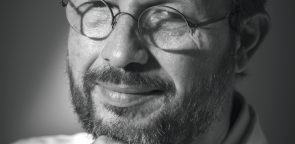
Gian Domenico Borasio feels that general practitioners are the pillars in end-of-life support.
Assisted suicide and the concept of medical futility have become hotly debated issues. Amid this turbulence, palliative care has gained greater recognition in the past few years. But Switzerland still has a way to go. One solution is to give family doctors a more central role in patient care.
GDB We’ve accomplished several major steps forward recently, including the acceptance of a national strategy for palliative care in 2009. This strategy has boosted the ad hoc structures available in the country. Other important advances have been made too. Palliative medicine
has been a compulsory area of study in medical school since 2012 and became an official sub-specialty, like geriatrics, in 2016. But Switzerland can do better. In its international survey in 2015, “The Economist” ranked Switzerland 15th in the quality of end-of-life care.
GDB Yes, general practitioners are the pillars of palliative medicine. Approximately 80% of people could be cared for by their family doctor at the end of their life,
with the help of health care providers and trained volunteers. Only around 20% of deaths require care by experts in palliative medicine. Most patients could theoretically stay at home, as long as general practitioners are better informed and trained properly. In-home care also needs to develop more. These days, 75% of Swiss people say they would like to die at home, but nearly 80% of deaths occur in hospital or specialised homes.
GDB The best way is to plan ahead. In concrete terms, we can prepare for our death in the same way we prepare for other aspects in life. In Switzerland, the new law on adult protection passed in 2013 entitles people to designate a therapy representative and predefine guidelines, such as instructions on which treatments they would like or refuse in an end-of-life situation. These guidelines should always be prepared with the help of their GP.